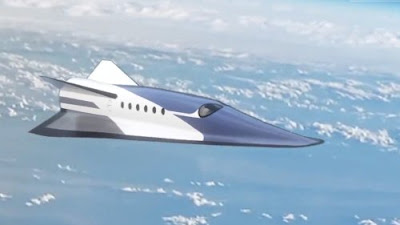Big German Automakers Bet on Hydrogen
Audi, BMW & Daimler Go Hydrogen Along With Asian Automakers
Source: BMW & Other Hydrogen Vehicles
Europe Joining Japan, South Korea & China in Development of Green Hydrogen Cars
Big German automakers, including BMW and Audi, are betting that hydrogen fuel cell technology is extremely important to the future of driving, along with battery electric cars. The current global consensus is that electric battery vehicles, your current and future EV, are the primary key to the near term, global automotive future. But the new twist from top automotive executives is the growing support building around the upcoming emergence of hydrogen powered cars, which are clean, zero emissions and much quicker to re-fuel. BMW and Audi, in particular, are ramping up their hydrogen vehicle development plans. They know that EV's remain a big part of the zero emissions future of the next decade and are building a portfolio of EVs. But they are signing on to a longer term strategy that hydrogen fuel cell vehicles are the long term future of zero-emissions driving.
BMW Hydrogen Plans
BMW and Audi are developing a fleet of hydrogen fuel cell prototype vehicles as they prepare for a fossil fuel-free future to meet new Climate Change targets, particularly in Europe and China. The biggest supporter among the big German automakers is BMW, which expects to have a mass market hydrogen model to sell by 2030. BMW has developed a prototype hydrogen car that's based on the X5 SUV. In the hydrogen prototype, the hydrogen is stored in two, 700-bar tanks, that can hold 6 kilograms of hydrogen. The tanks are made of carbon-fiber-reinforced-plastic or CFRP. And, BMW says it will test a fleet of 100 hydrogen prototype cars in 2022. BMW is not alone in its pursuit of hydrogen fuel cell cars.
Audi Joins the Hydrogen Development Ride
VW's luxury brand Audi has a team of more than 100 engineers and researchers who are developing hydrogen fuel cell technologies for the entire VW group. They have built a few hydrogen prototype vehicles. Audi and VW join Japan's Toyota in developing hydrogen vehicles. Toyota is certainly a true believer. It is building a hydrogen based city at the base of Mount Fuji and has a hydrogen fuel cell car on sale in niche markets. In South Korea, Hyundai is forging ahead with the development of hydrogen fuel cell vehicles. So too, is Nissan in Japan. But the drag on the current deployment of hydrogen powered cars is the expensive cost of the technology, which includes high cost metals, and the global lack of infrastructure to fill-up the h-cars with hydrogen.
China's Hydrogen Moves
China is on a hydrogen road to change the lack of hydrogen infrastructure. It is greatly expanding its hydrogen fueling station infrastructure. And several Chinese automakers including Great Wall Motors are now developing hydrogen SUVs.
US Strategy
US automakers are primarily promoting and producing electric battery cars, trucks and SUVs. But GM and Ford are developing hydrogen big rig trucks for long distance commercial travel. The promise of the hydrogen technologies being developed is that they will be applicable for the development of mass market consumer hydrogen cars. In the US, there are also some very notable startup companies like Alakai Technologies that are developing hydrogen powered e-VTOLs or flying taxis. Alakai's very promising hydrogen e-VTOL Skai can carry up to 5 passengers and cruise at speeds of 100 mph with a range of 400 miles. It was co-designed by BMW's innovation studio, Designworks.
Daimler Hydrogen Trucks
Daimler Mercedes Benz has an interesting hydrogen strategy, that is similar to that of GM and Ford. It is investing in and developing hydrogen fuel cell technologies for its big truck division. In fact, it is investing heavily in using hydrogen fuel cells to fuel big rigs because lithium-ion batteries are too heavy to support electric trucking on long hauls. The Daimler hydrogen truck technology is expected to convert into consumer market car technology and bring costs and economies of scale to market scale levels for hydrogen powered consumer market cars. That would bring the horizon of hydrogen driving for consumers into a faster and most affordable place. The big sales jump for hydrogen cars is expected by 2035. But the R&D and sharp focus on hydrogen vehicles that is happening in the global market right now is fascinating and relentless. To take a look at many more new vehicle innovations, go to https://read.amazon.com/kp/embed?asin=B08YTGFCG2&preview=newtab&linkCode=kpe&ref_=cm_sw_r_kb_dp_RV3DG397BQNPZAKGBGZ2
... ...








Comments
Post a Comment